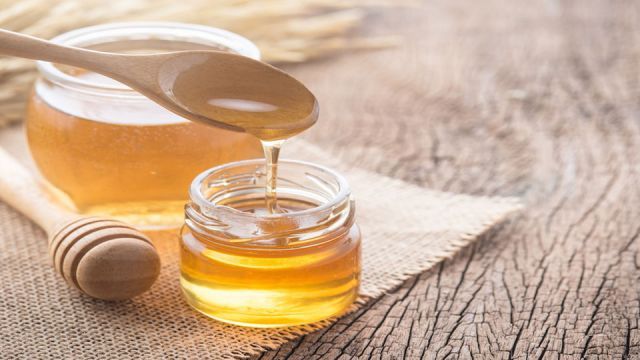
Do you find the world of sugar substitutes confusing? I don’t blame you – the waters can indeed be quite rocky. Making the decision to cut refined white sugar and high fructose corn syrup out of your diet is a great one – you just want to be sure that you don’t jump from the fire into the frying pan. If you choose agave syrup as your new go-to sweetener you are, unfortunately, doing just that.
The beautiful and exotic agave plant grows in fertile volcanic soil under the hot Mexican tropical sun. It has a valued reputation for its ability to remedy a host of digestive disorders and speed the healing of wounds. So far so good right?
Wait… here’s where it takes a turn for the worse. Enter the food manufacturer. Although the makers of agave would have you believe that the nectar is naturally extracted from the plant and bottled, that is far from the truth. The majority of agave nectar products are nothing more than hyped up high-fructose corn syrup with fancy and alluring packaging. In fact, minimal resemblance to the natural nectar remains once it is processed.
As more and more people have walked away from foods containing high fructose corn syrup (a good move), other foods that have more of a “healthy” ring to them, such as agave nectar, have moved into the spotlight. The problem is that, although it is labeled as “diabetic friendly,” raw, and “100% natural sweetener,” it is not any of these.
The Agave Nectar in stores is NOT a traditional food
Although you may get the impression from the packaging of some agave nectar products that it is an ancient food used by natives in Mexico, it is more likely that the sweetener in the bottle is actually a newly created sweetener, developed in the 1990s. While it is true that natives have used various species of agave plants for medicine and building shelter as well as making alcoholic drinks, this is not the same stuff that you find in the grocery store.
Unfolding the scam
Manufacturers claim that agave “nectar” is made from agave (yucca) sap, but the truth is that what is actually inside bottles of fraudulently healthy “nectar” is created from starch found within the plant’s large root bulb. This starch is a lot like the starch found in corn and rice – a complex carbohydrate that is called inulin. This carbohydrate, an indigestible fiber, is made from chains of fructose molecules that aren’t sweet.
To create the “nectar,” manufacturers use a process similar to that used to convert corn starch to high fructose corn syrup. Agave starch goes through an enzymatic and chemical process that converts starch into a fructose-rich syrup that can contain 70% or more fructose.
Truth be told, the refined fructose in agave nectar is more concentrated than the fructose found in high fructose corn syrup. For example, the high fructose corn syrup used in soda is 55% refined fructose – less than what you find in agave!
The FDA doesn’t help the consumer too much here either. According to Dr. Marin Stusman of the Food and Drug Administration’s Office of Labeling Enforcement, “Corn syrup treated with enzymes to enhance the fructose levels is to be labeled ‘High Fructose Corn Syrup.’” Agave, on the other hand, only requires the label ‘hydrolyzed inulin syrup.” Even though agave is a starch and fiber food that is processed in the same way as corn using enzymes. Even still, it does not require a label giving consumers a hint to its constitution. It should be labeled “High Fructose Agave Syrup.” if the truth were to be told.
You can find agave syrup in two colors, clear, or light and amber. Agave is processed in Mexico where quality control is sometimes a problem. Fructose can be burned after heat treatment above 140 °F, thus making a darker color. The labels create this false impression of an artisan product – similar to the light color of an amber beer. You may see a label on this product such as “chicory syrup.” Beware, this is simply a marketing ploy used to give the false impression of wholesomeness.
What about saponins?
Yucca species contain a large number of saponins. Although the industry describes saponins as beneficial – this is just more bunk. The truth is, saponins, that are found in many varieties of agave plants are toxic steroid derivatives. They can disrupt red blood cells and produce diarrhea and vomiting. Pregnant women should also avoid saponins as they can contribute to a miscarriage by stimulating blood flow to the uterus.
Thumbs down to agave
Make no mistake, agave syrup is an imposter and not healthy. It goes through a complicated and highly processed refining process. This process converts starch and fiber into a sweet mess.
High fructose agave syrup can cause many health problems including:
- mineral depletion
- liver inflammation
- hardening of the arteries
- insulin resistance that can lead to diabetes, elevated blood pressure, obesity, and cardiovascular disease.
Smarter options
To satisfy your sweet tooth choose all natural raw stevia instead or these natural sweeteners:
-Susan Patterson

